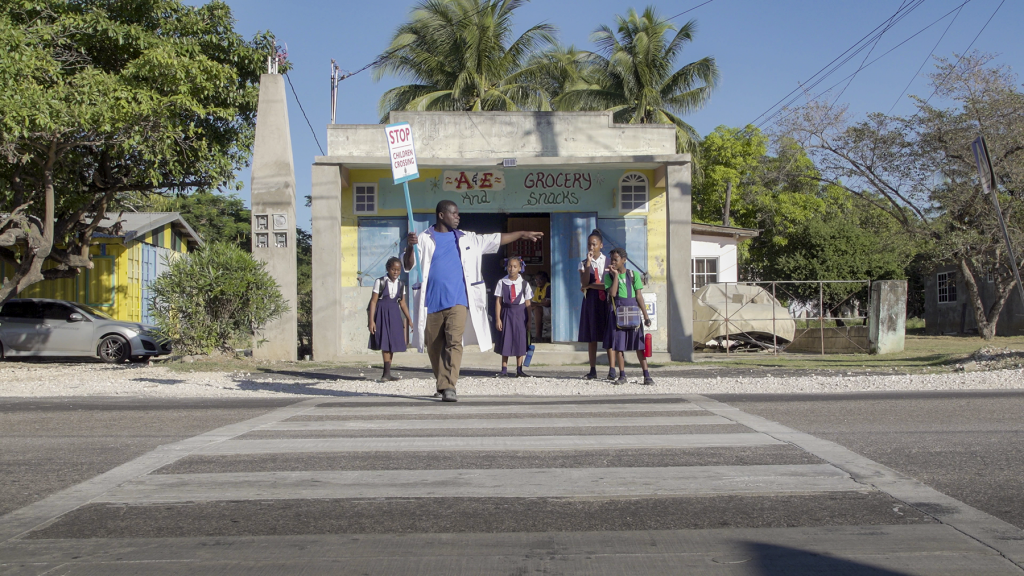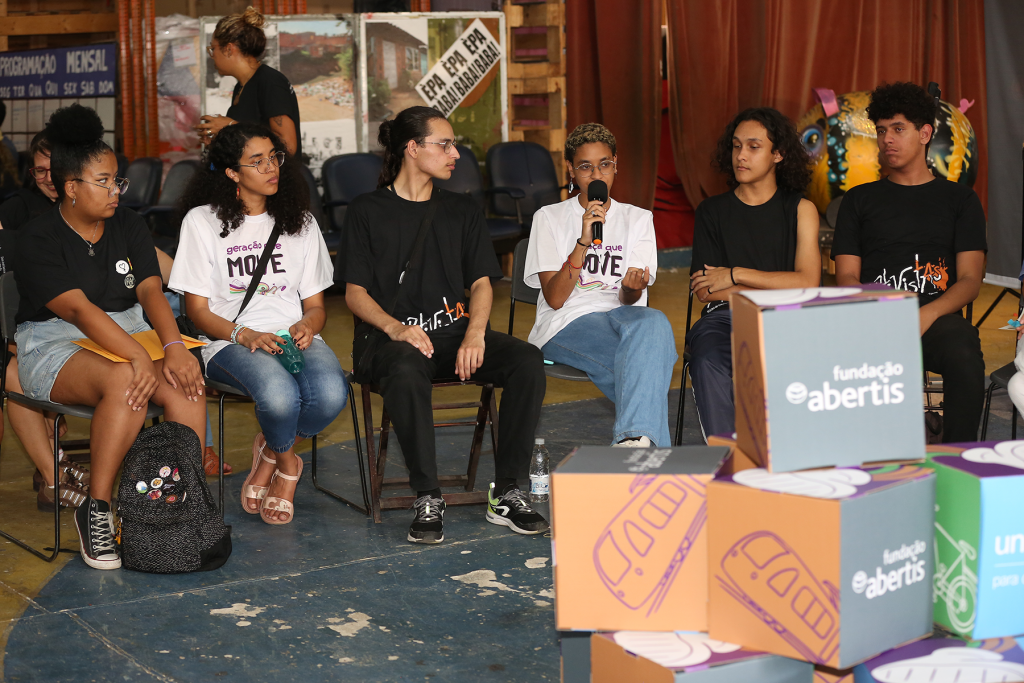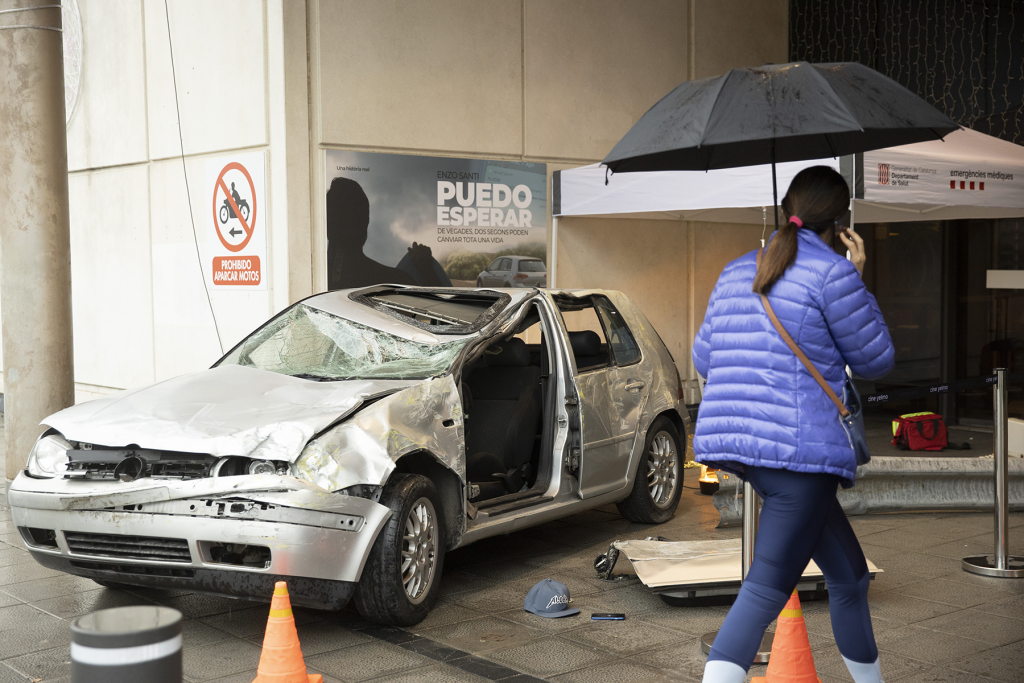The Abertis Foundation highlights five of its best road safety campaigns to celebrate its 25th anniversary
Road safety is not only a matter for the governments of each country; it is also one of the great concerns of Abertis, which is why, through its Foundation, it has launched a good number of campaigns since the creation of the organization 25 years ago.
“The main objective is to raise awareness of the need for safe, sustainable and responsible mobility to reduce traffic accidents and the number of fatalities on roads around the world,” explains Elena Salgado, president of the Abertis Foundation. “The activities focus on training schoolchildren, raising awareness among young people and raising awareness among drivers. Road safety is part of the DNA of Abertis and its Foundation.”
For some of these actions, the Abertis Foundation has sought the collaboration of governments and international organizations such as UNICEF. The Rights of Way program was born from the strategic alliance between the two organizations. Every year, 1.3 million people die on the roads around the world. Approximately 200,000 of these are children walking to school. Thanks to this joint program between the Abertis Foundation and UNICEF, various initiatives have been launched that contribute to combating traffic accidents, one of the main causes of death in school-age children.

The road safety campaigns that Abertis has carried out through its Foundation, in the context of the Rights of Way program, have been developed in the countries in which the Group operates. In addition to technical and engineering issues, these projects study many other variables. One of them is traffic, and this is where the Abertis Operations team begins to act.
“Among other things, they identify the level of accidents on motorways by carrying out road safety observatories in collaboration with local institutions,” explains Georgina Flamme, director of the Abertis Foundation. “As a company, we cannot intervene directly in the behavior of drivers or in the legislation on car maintenance, as we only manage the infrastructure. This is where the Abertis Foundation comes in, developing and disseminating road awareness campaigns to contribute to this problem.”
Over the past 25 years, the Foundation has launched many road safety campaigns in countries such as Spain, France, Italy, India, the United States, Mexico, Puerto Rico, Chile, Argentina, and Brazil, but as talking about all of them would take too long, the Abertis Foundation has selected five. “These campaigns are important because they have continued over the last few years and, in addition, they are carried out in collaboration with local and international institutions. Specifically, the Geraçao que move campaign is part of the agreement we have with UNICEF until 2025,” summarizes Flamme.
Geraçao que move
Mobility in Brazil continues to prioritize a road model in most of its cities and urban centers. As a result, the country experiences high rates of traffic mortality, which is one of the main causes of death in children, adolescents, and young people.
As they say at UNICEF Brazil, this campaign was an innovative action that aimed to promote the right to safe mobility for children and young people living in favelas and outskirts in the cities of Rio de Janeiro and São Paulo. For them, traveling daily to their schools, leisure centers, work or even health centers is an activity that not only requires many hours of travel, but also puts their safety at risk. In fact, they are the ones who suffer the most traffic accidents and are most exposed to violence in public spaces and the effects of pollution on their health.

The Geraçao que move campaign put them at the center of what should be done and gave them a voice. Developed over several phases, during the 2023 period, more than 9,600 children and young people participated in the project’s training and activities, reaching more than 163,735 people around their community. The young people took part in and led debates on road safety and urban mobility, which also addressed the right of access to the city, inequality of opportunity and the effects that these limitations have on their mental health and life opportunities.
Since the campaign was launched in 2020, 11,000 adolescents have been directly involved in youth empowerment training and participation activities. 170,000 adolescents have been directly impacted by communication actions to promote safe urban mobility and the outreach program has reached 100,000 people through social media.
Rights of Way
In 2017, the Abertis Foundation signed a collaboration agreement with UNICEF and the Guttman Institute, a center in Barcelona specializing in rehabilitating people with neurological damage, to carry out a road safety program they called Rights of Way. This is a fund dedicated to improving the safety of children on roads around the world.
The program was launched in New York in 2018 during the United Nations General Assembly. The aim of this campaign is to raise awareness and alert about the road safety problem that exists and affects children, adolescents and young people, to support research, improve public policies and create safe school zones.
Rights of Way is the most ambitious project of the Abertis Foundation dedicated to preserving the right of children and adolescents to a safe route to their schools and study centers. Through it, awareness-raising actions aimed at all age groups are implemented. Thanks to these actions, in 2020 the number of injuries and deaths caused by traffic accidents in the world was halved, which is one of the United Nations Sustainable Development Goals.
In addition, between 2017 and 2021 it helped improve the road safety of more than 1.9 million children and young people in Brazil, Jamaica, the Philippines, and India. During the pandemic, the COVAX project was added to the road safety initiatives in India and Brazil, and currently, the focus is on promoting girls’ access to STEM careers in Mexico. The collaboration agreement with UNICEF has been renewed until 2025.
Lives in motion
How we would like the cities of the future to be, how to improve air quality in large cities and how to make mobility more autonomous are issues that concern us directly and which we need to reflect on. The Abertis Foundation, in collaboration with Together with Abertis Mobility Services and Autopistas España, launched the Vidas en Movimiento (Lives in Motion) campaign. Among the activities included in the program, it organized a series of meetings under the slogan ‘The mobility of the future: let’s open the debate’.
The aim was to delve deeper into the current challenges of urban mobility in order to encourage reflection on issues of safety, sustainability and inclusion. These meetings were attended by experts and representatives of civil society, who exchanged experiences and disseminated information on smarter mobility management.
The starting point was a short film showing the daily journeys in different cities made by children and young people from three Spanish families. The campaign travelled around Spain for several months and launched a series of travelling debates in which a social, environmental, regulatory, and educational perspective on mobility was shown.
The blackout
Alcohol is the great enemy of road safety. Driving under the influence of alcohol is behind a large number of traffic accidents, hence the importance of raising awareness among young people about the dangers of getting behind the wheel. How to do it? By surprising them when they are enjoying music, dancing, and friends in a nightlife venue. The aim was to generate impactful and viral content that would not leave them indifferent.
The blackout is a road safety campaign that promotes safer and more conscious mobility among young people, carried out by the Abertis Foundation in collaboration with the Sant Cugat City Council (Barcelona). At 3:00 in the morning on the night of Sant Joan, the lights and music of the Teatre Sant Cugat nightclub were turned off to show a video in which a young man spoke from prison to give his real testimony. He had been imprisoned for having caused a fatal accident by driving under the influence of alcohol.

“At the Abertis Foundation we want to send a clear message to young people to stop them from getting behind the wheel after consuming alcohol and/or other drugs,” explained the director of the Abertis Foundation, Georgina Flamme. “We want to touch the consciences of drivers and, most importantly, save lives.”
The campaign had already been carried out in other cities such as Barcelona, Madrid, Valencia, Salamanca, Ibiza, Verona and Santiago de Chile. In successive editions, it was viewed by 10 million users on social networks, including nearly one million views on YouTube.
I can wait
Somewhat in line with the previous project, which aimed to surprise the target audience, the Puedo esperar campaign was screened in several Yelmo cinemas in different cities in Spain in 2019. In the images, the person speaking is Enzo Santi, a young man who was left paraplegic and with various other health issues after having suffered a serious accident while answering a message on his mobile phone while driving, just after leaving the cinema.

The objective of the campaign was clear: to alert and raise awareness among citizens of the risks posed by the inappropriate use of mobile phones and instant messaging applications while driving. The interview was broadcast just before the start of the film, and at the end of it, Enzo addressed the viewers, inviting them to reflect: if they were able to endure not picking up their mobile phones or keeping them switched off for the duration of the film, why do they need to answer their messages when they are behind the wheel?
The campaign received the award for the best road safety campaign at the 2020 Ponle Freno awards, organized by Atresmedia and the Axa Foundation. The data to date shows the success of the initiative: it has reached almost four and a half million viewers and continues to be projected in 2024 in Mexico through Red Vía Corta, Abertis’ concessionaire in that country.